
From hot chili peppers to a strong constitution
It is hard to believe that we are already half way into term, with orientation, OUF, and reading days behind us. The weather over the summer prepared us for autumn; yet the weather the past few weeks has reminded us of what we would normally expect in summer. It was a bad year for my tomatoes, worse yet for jalapenos, but oddly enough, it was a fantastic season for Bhut Jolokia, Trinidad Moruga Scorpion, and Carolina Reaper chilies. Go figure.
In this issue we welcome new faculty and staff to our community – you can read a bit about each of them and discover that we have colleagues who list, amongst other activities, axe-throwing and cleaning (not together, thankfully) as their hobbies. I am also delighted to report that we welcomed more than fourteen hundred new undergraduate students to the faculty. All of our entry programs ended up meeting or exceeding their targets, and I would like to thank all our staff, faculty, and student volunteers who helped over the past year to draw so many students to Arts at Waterloo. And the news on the graduate front is much the same where we are hitting most of our targets in what has become a very competitive environment. We will be looking more closely into all our enrolment numbers to discern patterns and develop strategies, but in the meantime, we can be proud of the fact that we have done so well across the board given the demographic and political challenges facing Arts enrolments generally.
We will continue to look into developing new programs in case the government creates any opportunities for enrolment growth while simultaneously looking at improving and enhancing our current programs. Notable initiatives ahead include the launch next year of the Arts First pilots for first years and the Global Engagement seminar for final year students.
Another important initiative in which we are playing a very active role is in the University’s response to the calls for action from the Truth and Reconciliation Commission. Most of you will have seen the President’s call for volunteers to serve on a number of working groups that have been struck to develop a university-wide response. I am delighted to be the decanal representative on the steering committee and will be chairing one of the working groups. I know many other faculty and staff members have put themselves forward to join the working groups and encourage any of you who are interested to join us.

Members of the Faculty of Arts have taken a leading role in addressing issues of indigenization and the calls to action through sponsoring speakers, organizing workshops, and making issues of indigeneity a part of our curriculum. Most recently, we have in conjunction with our partners at Wilfrid Laurier University, the City of Waterloo, and the Waterloo Public Library, made the TRC’s calls to action, and the historical context behind those calls, a major theme in a series of roundtables we have organized to reflect upon Canada 150: Truth and Reconciliation in Canadian Post-Secondary Education on November 1, and Hidden Histories on December 13.
And for anyone who gets excited by the mere thought of constitutions and byelaws, we are also revisiting the Constitution of the Faculty of Arts and will be bringing a revised version to Arts Faculty Council for discussion and approval. Some of the changes are housekeeping in nature, e.g. updating membership to reflect the current composition of the Faculty, while others are needed to align our constitution with the recent inclusion in the MOA of the requirement that faculty-level annual performance review guidelines be approved by faculty councils. We are also taking advantage of this opportunity to look at Faculty governance as a whole, and to revitalize the Arts Faculty Council to ensure that it has more meaningful and engaging agendas. Stay tuned.

Welcome to our newest faculty and staff members
Each fall we welcome and introduce faculty and staff who joined (or rejoined) Arts over the past year.
Accounting and Finance | Arts Computing Office | Arts Undergraduate Office | Dean of Arts Office | Drama & Speech Communication | Economics | English Language & Literature | Fine Arts | French Studies | Political Science | Sociology & Legal Studies | Spanish & Latin American Studies | Stratford Campus
Accounting and Finance
Mark Arnason | Lecturer | has a 28-year career in the high tech industry, including 10 years in management consulting with companies like Accenture and Deloitte, and 15 years of senior executive experience in the enterprise software space. He was an executive at IBM Software Group and ran their $1.4B communications sector. He has 25 years of teaching experience.
Jordan Bable | Assistant Professor | is a researcher in financial and managerial accounting, including determinants of investor and employee behavior, primarily experimental methods. His teaching interests include managerial and financial accounting. In 2016 he received the Deloitte Foundation Doctoral Fellowship.
Andrew Bauer | Assistant Professor | Canada Research Chair in Taxation, Governance and Risk |worked with the accounting firm EY for six years, earning CPA designation, and earned his PhD in accounting at UWaterloo with a specialization in tax. He was previously on faculty at the University of Illinois (Urbana-Champaign) since 2011.
Ross Lu | Assistant Professor | has research interests in economic consequences of corporate governance disclosure, managerial ability and bank loan pricing. His teaching interests include financial and managerial accounting. He contributes to SAF by strengthening research and teaching in our financial accounting area.
Seda Oz | Assistant Professor | has research interests in financial institutions, information intermediaries, regulation and corporate disclosure. Her teaching interests include financial accounting, financial statement analysis and empirical research methods. In 2016 she was awarded the McGill All Star Professors award.
Dan Rogozynski | Lecturer | has a 20-year career as a Senior Financial Officer in various companies including Big Sky Hospitality Limited, Cara Operations Limited, and Sleeman Breweries Limited. He has six years of adjunct teaching experience. At SAF he teaches in taxation as well as supports the Waterloo Centre for Taxation in a Global Economy.
Adam Vitalis | Assistant Professor | has research interests that include using experimental methods to explore the limitations of information processing in financial and audit settings. His teaching interests include assurance and management accounting.
Arts Computing Office
Bill Baer | Information Technology (IT) Director |
Pratheepan Balasingam | IT Specialist, Psychology |
Arts Undergraduate Office
Emily Hudson | Curriculum Assistant | has been with the University since 2013 and found her home in the Arts Undergraduate Office this past year. She enjoys helping departments with their plan and course changes, berry picking and axe throwing.
Dean of Arts Office
Kitti Muzslai | Financial Analyst (Research) | answers any administrative or eligibility questions about research accounts in the Faculty of Arts. She has worked on campus for four years in similar research financial analyst/administrative roles. In her spare time, she enjoys cleaning (seriously) and spending time with her energetic preschooler.
Sherri Sutherland | Senior Development Officer | is Certified Nonprofit Professional with over 30 years of experience in fundraising, board governance, program development, and volunteer management. She has a BA in Human Relations from High Point University. Originally from North Carolina, this year she celebrated 25 years of living in Canada with her husband and two daughters.
Drama & Speech Communication
Kevin Carey | Lecturer | is an interdisciplinary teacher-scholar whose work focuses on higher education and rhetorical theory. Drawing on institutional histories, critical pedagogy, and philosophy, his research examines tensions between progressive aims and conservative functions of higher education.
Jordana Cox | Assistant Professor | bridges communication studies, performance history, and public humanities. She holds an Interdisciplinary PhD in Theatre and Drama with a graduate certificate in Rhetoric and Public Culture. At Northwestern University, she held a Graduate Fellowship in Ethics and Civic Life, and coordinated experiential learning initiatives at the Center for Civic Engagement.
Economics
Bharat Sud |Lecturer | has research interests in long-term effects of marketing strategy on brand performance and cross-category effects of marketing strategy. He is currently preparing a manuscript based on his dissertation from the University of Western Ontario, for submission to the Journal of Marketing Research.
English Language and Literature
Andrea Jonahs | Lecturer| teaches GENE199 Communications in the Engineering Profession, as well as other courses in Science and Technical Communication. She also brings strengths in the rhetoric of science and technology and in the area of critical race theory.
George Lamont | Lecturer | is an experienced teacher of STEM communications. He teaches GENE199 Communications in the Engineering Profession, as well as other courses in Science and Technical Communication. He also brings broad strengths in English literature and rhetoric.
Fine Arts
Karin Staley | Administrative Coordinator and Advisor, Undergraduate Studies | is a graduate of Centennial College in Digital Animation and completed a postgraduate work in Digital Visual FX at Sheridan College. She worked for 15+ years in the film and television industry; and was a curriculum/content/front end web developer at D2L. Before joining the Fine Arts, she taught with the WRDSB.
French Studies
Nicole Nolette |Assistant Professor | specializes in minority studies (Acadie, Ontario, Western Canada, and Québec), French Canadian theatre, and literary translation (theatre) into French in a minority context. After a postdoctoral fellowship at Harvard University (2014-2016), she taught at Acadia University. Among her publications is the award-winning Jouer la traduction.
Political Science
Shelby Davies, Graduate Program Coordinator, joined Political Science and Global Governance last October after three years of contract work in Graduate Studies Postdoctoral Affairs. She provides support to graduate students across three programs, and feels fortunate to work with so many great students, faculty, and staff in Arts.
Sociology and Legal Studies
Christina Lashbrook | Administrative Assistant | provides department support to both faculty and staff. She came to Sociology and Legal Studies after 10 years of administration experience within Mechanical & Mechatronics Engineering and has been employed on campus since moving to the Waterloo area over 15 years ago.
Andrea Quinlan | Assistant Professor | completed a postdoctoral fellowship in Science and Technology Studies at Cornell University and taught Gender & Women’s Studies at Trent University. Her expertise is in contemporary social theory, science and technology studies, gender studies, and legal studies. She is the author of The Technoscientific Witness of Rape: Contentious Histories of Law, Feminism, and Forensic science.
Spanish and Latin American Studies
Annik Bilodeau | Lecturer | researched the evolution in the treatment of cosmopolitanism in Spanish American literature and was nominated for the Governor General’s Gold Medal for best dissertation in the Social Sciences and Humanities and the CALACS Outstanding Dissertation Prize. She currently examines the representation of the female cosmopolitan artist in the works of Elena Poniatowska.
Tracy Klassen-Jacobs | Administrative Assistant |
Stratford Campus
Tabatha Dominguez | Lecturer | has nearly 20 years of industry experience, as well as experience as a lecturer in the Lazaridis School of Business and Economics, Wilfrid Laurier University. In 2015 and 2016, she worked as a sessional instructor for the Stratford Campus, teaching Introduction to Global Business and Business Ethics.
Karin Schmidlin | Lecturer | returns to Stratford’s undergraduate and graduate programs, teaching User Experience (UX) and Applied Leadership. She won a 2017 Arts Award for Excellence in Teaching; has 14 years of design and digital media experience; and holds a BA from the University of the Arts, Zurich, and a Master of Digital Media.
Sebastian Siebel-Achenbach | Lecturer | has taught courses including Cross-cultural Digital Business, Entrepreneurship, Applied Leadership and Management and modern European history. He holds a doctorate from the University of Oxford, an MBA from Wilfrid Laurier University, and has six years of experience working in industry.
Leah Zhang-Kennedy | Lecturer | holds a PhD in Computer Science from Carleton University. Her work bridges design and research from computer science, human-computer interaction, and graphic design. She has four years of industry experience working as a designer.
Looking back at the arc of the Faculty of Arts
» Tim Kenyon, Professor of Philosophy and Associate Dean of Arts, Research; Vice-President, Research, at Brock University effective January 1, 2018
When I began my current role as Associate Dean (Research) in 2012, the Arts strategic planning process was just gaining speed. Its initial consultation phase had been wide-ranging and transparent. The subsequent refinement of priorities and write-up involved many staff, students, and faculty. The resulting document was circulated, discussed, revised, and then passed overwhelmingly at Arts Faculty Council.
This year, the Faculty of Arts passed an amendment to our 2014-19 Strategic Plan with references to the 2015 Truth and Reconciliation Commission (TRC). The aim was to have the revised Strategic Plan reflect the Arts’ commitment to indigenization of the academy, in the spirit of the TRC’s Calls to Action bearing on universities and education.
To summarize, then: we had consulted, pondered, and planned for two years. And yet our original plan failed to mention a moral and institutional imperative that we recognized as utterly essential within only two years.
Given that it’s possible to overlook something of extraordinary importance when attempting a strategic plan, is it even worth the profound costs in time and energy required? Why go to the trouble of telling a complex and detailed story of what your priorities are, and your actions will be, when circumstances or your own aims might change dramatically?
These are familiar questions in research administration. Researchers can find grant applications frustrating; they may ask why they should go through the motions of pretending to know what papers they’ll be writing, what students they’ll be supervising, what conferences they’ll be attending four or five years in the future. Disciplines, researchers, and institutions change over those time periods. Any proposal written now is pretty speculative relative to outcomes years down the road. The point of speculating in such precise operationalized detail can be obscure.
Yet the planning of precise details for one’s future research – or for other endeavours - has virtues well beyond the question of whether those particular details will hold in the future. Many researchers report that coming up with a research plan is an important way of gaining perspective and taking stock of their broader academic interests and ambitions. Set aside the notions of planning as a matter of fussy bureaucratic organization; I’m talking about the importance of occasionally seeing ourselves in a larger narrative, stepping back from the quotidian, shaking off the routine of courses and committees, 2-hour meetings and 12-week terms, that otherwise dominate the academic schedule.
When I started as Associate Dean, too, there were things I hoped to accomplish – a set of interconnected plans for transparency, efficiency, and effective advocacy for Arts research. Some of those specific plans came to fruition to some degree; others have been so thoroughly overtaken by events that I can hardly remember them; still others were predicated on ignorance that I was fortunate to have corrected by working with generous expert colleagues.
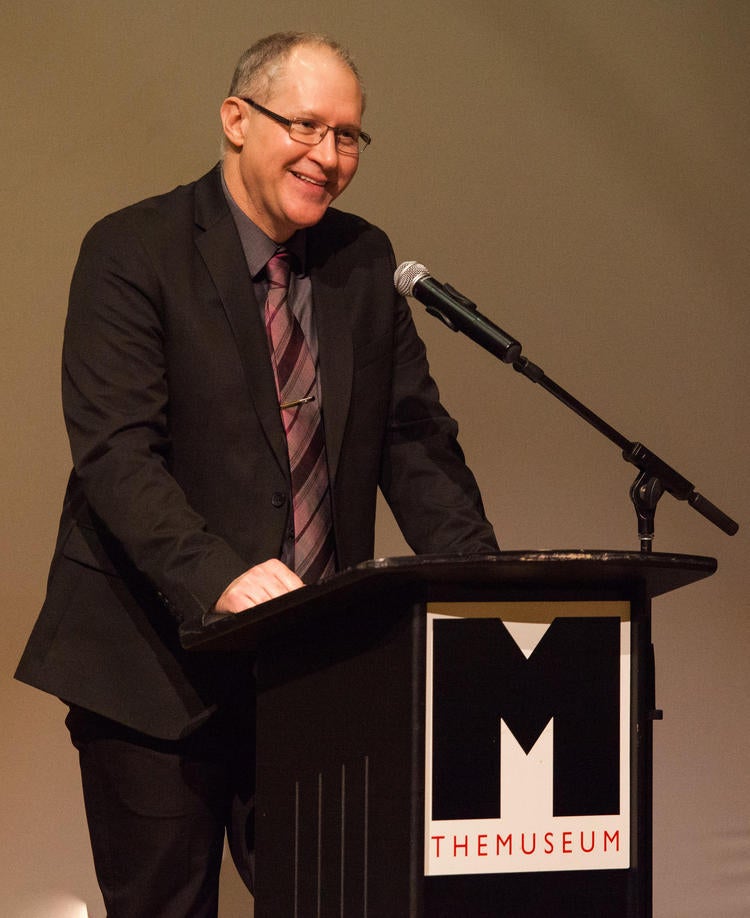
As it turned out, the majority of tasks I worked on throughout my time as ADR arose on the fly, often due to projects and initiatives originating outside the Faculty or even the University. These projects were unforeseeable in advance, and sometimes inconceivable in retrospect too – administrative equivalents of Escher staircases that were somehow climbed, though I’m damned if I can remember how. Yet, even where the original plans were pared away by exigency until they were little more than content-free structure, they still framed a story about, broadly, why the Faculty of Arts and its researchers matter. It was just a story that included a lot of unplanned priorities and events slotted into the orbit of larger intentions.
Looking back at the arc of the Faculty of Arts over the time I’ve been lucky enough to work in it – including my time as an administrator – I see a community that has benefited from asking itself the same kinds of questions we all profitably ask as individuals too. How do I want to develop and improve in my many roles? What practical or intellectual puzzles or problems do I want to illuminate? What sort of colleague do I want to become? What responsibilities should I bear in light of the privileges I hold? Our questions and answers are inevitably imperfect, but they help us see our work in a larger context. For me, at least, this sort of narrative ultimately affords some optimism. It enables me now to look back and say: Here is how things were with us. These are things we did together. And here is how we will do better, too.

Wondering about the Hub elevator? Or the fate of the Pickle Forks?
Elevator
As you wander through the Hagey Hall Hub, do you wonder if that glass-encased capsule in the centre of the space will ever become a functioning elevator? “It doesn’t work. It’s kind of a running joke,” a student jumped up to tell Kathryn MacDonald (Arts Executive Officer) as she recently checked the Hub for signs of elevator progress. After more than a year since the Hub opened and countless requests by the Dean of Arts office for an ETO (estimated time of operation) from Plant Operations, the elevator remains immobile. While getting it to work is frustratingly beyond the powers of the Dean of Arts Office, the Hub elevator is not a lost cause (even if it is a running joke, and the Dean plans to announce a name-the-immobile-installation contest). Some may recall that including an elevator within the new Arts students’ space was a priority in the design and budgeting for the Hub. So, we will continue to wait for the elevator. One day, we'll have a mini-grand opening celebration - with free rides for everyone.
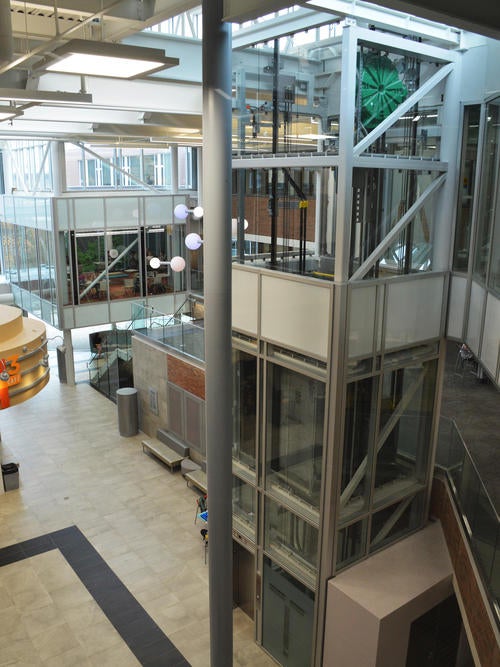
Pickle Forks
Then there are the erstwhile Pickle Forks – the four sculptures that occupied the former Hagey Hall courtyard (site of the Hub now). On April 30, 2015, the four steel sculptures, created and installed by artist Ron Baird in 1971, were removed and stored on campus. As was reported at the start of the Hub construction, the intention was to reinstall the sculptures on campus… somewhere, someday. Last year Mr. Baird accepted the Dean’s invitation to join the discussion about reinstallation. After Doug Peers and Kathryn MacDonald met with the artist along with a representative from Plant Ops, it was agreed that a plan would be drafted to re-configure the sculptures (which the artist himself refers to as pickle forks!) on the front lawn of the PAS building – the grassy area facing the Ring Road and University Avenue beyond. Mr. Baird drafted a concept to combine the four pieces into a single Swiss-Army-knife-like sculpture (see rending below, which is not scale). However, we have a wrench in the works now, as Plant Ops is reassessing the proposed location. Meanwhile, the Pickle Forks remain in storage limbo, patiently waiting for promotion to a multi-tool sculptural installation.
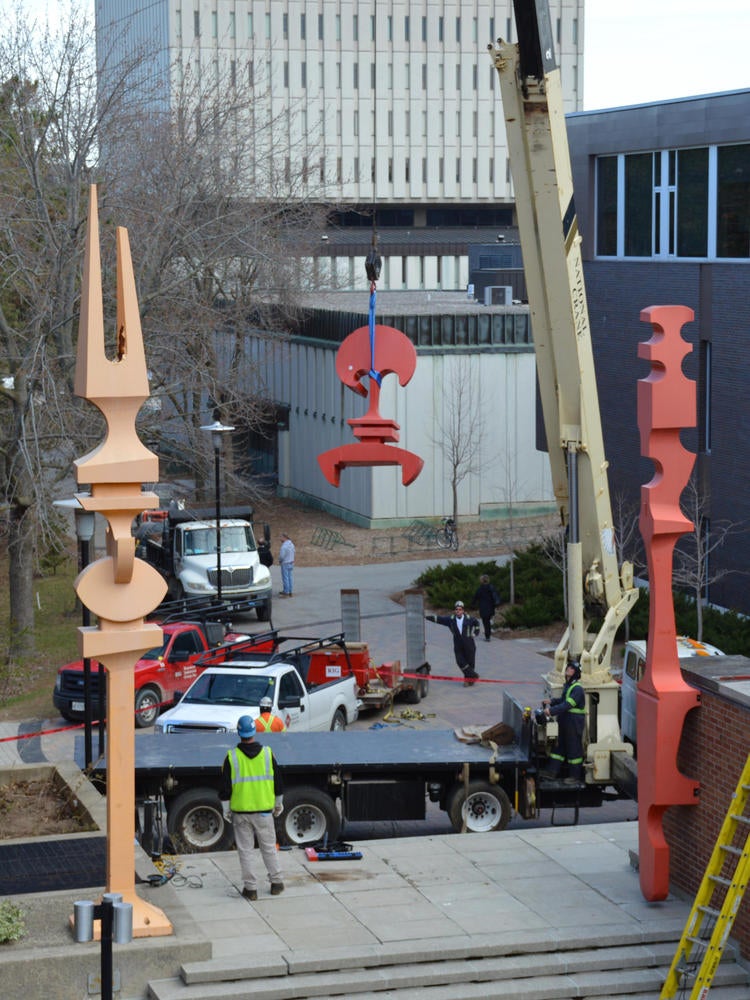
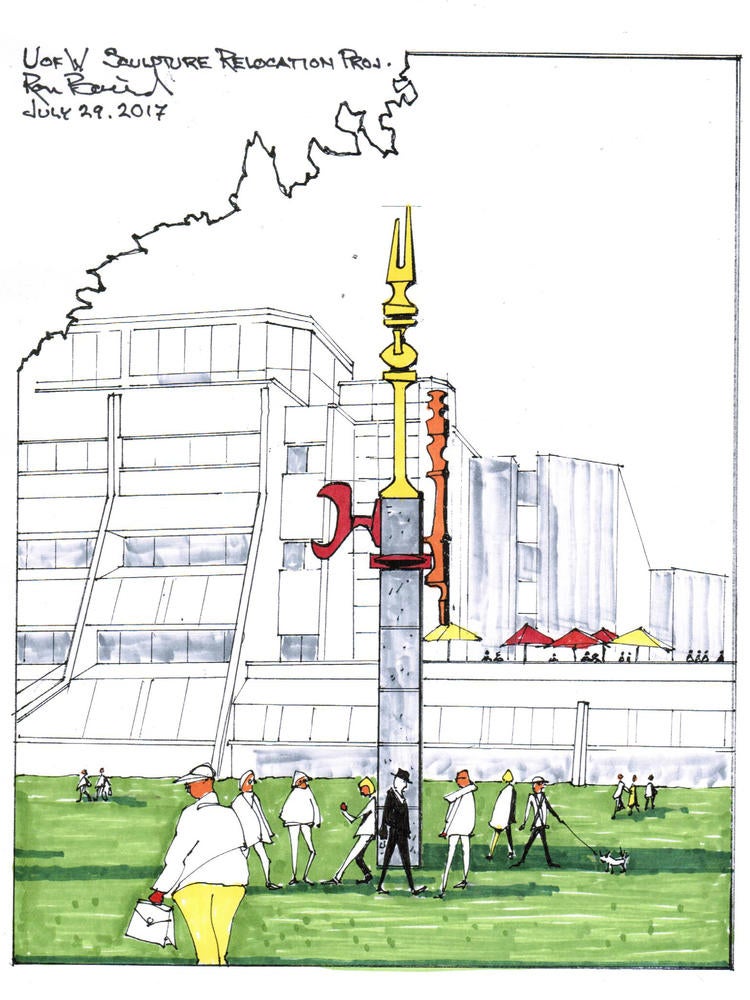
From the Office of Research
A new handbook to help Principal Investigators understand their responsibilities and requirements is available to all Waterloo researchers and staff. The Principal Investigator’s handbook is a collection of resources designed to guide PIs on the compliance obligations related to their research projects including intellectual property and commercialization, hiring a research team, and research agreements. Developed by the Office of Research, each aspect of the PI’s responsibilities is detailed with mandatory requirements and best practices.
Upcoming events you don't want to miss
- November 15-18, Concord Floral, produced by the Theatre & Performance program
- November 29, Indigenous Speakers Series: Marie Clements and The Road Forward
- November 25 to December 10, 16 Days of Activism Against Gender-based Violence
- December 13, Canada 150 Series: Canada's Hidden Histories
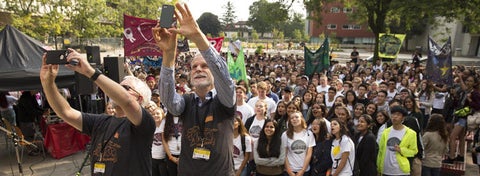
Feedback?
Inside Arts is published each term. Comments, ideas, and submissions are always welcome. Please contact Wendy Philpott.